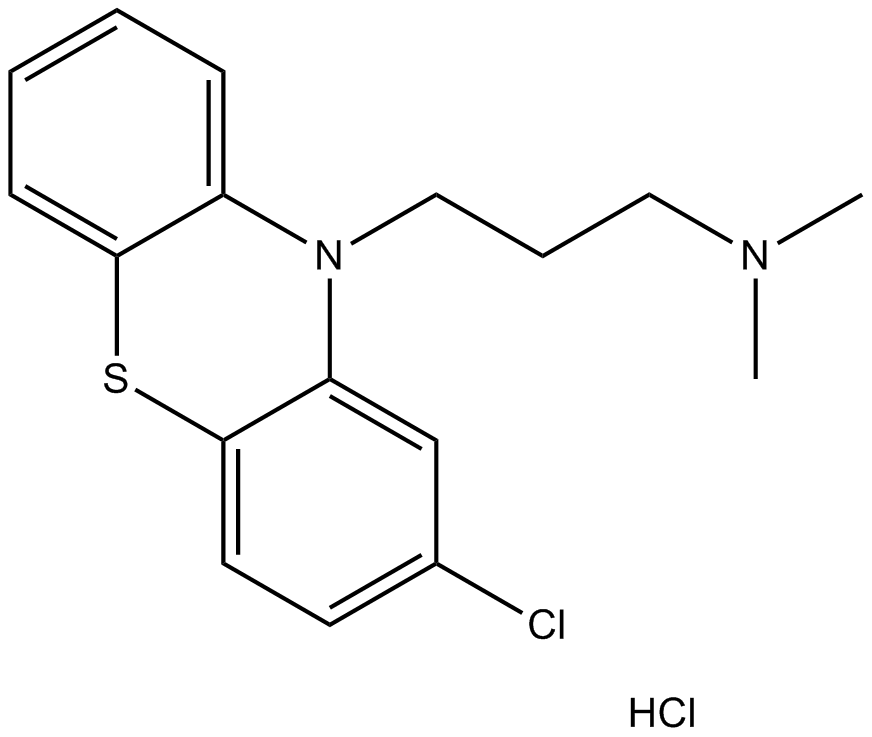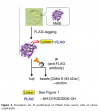The Far-Reaching Impact of Chlorpromazine Antagonists on Mental Health Treatment
In the field of mental health, advances in drug development and treatment methods continuously bring new hope to patients. Among them, chlorpromazine antagonists, as an important class of neuro pharmaceuticals, have played an irreplaceable role in treating psychosis and other related diseases since their inception. This article will delve into the pharmacological effects, clinical applications, and profound impacts of chlorpromazine antagonists on mental health treatment.
The Pharmacological Basis of Chlorpromazine Antagonists
Dopamine receptors are a class of G protein-coupled receptors primarily located in the central nervous system and are closely related to many neural processes. Therefore, dopamine receptors have become an important target for neuro-pharmaceutical development. Antipsychotic drugs, especially chlorpromazine, exert their therapeutic effects by antagonizing dopamine receptors.
Chlorpromazine, also known as Wintermin, is a typical representative of phenothiazine drugs. Its pharmacological action mainly lies in antagonizing dopamine (DA) receptors in the brain's limbic system, thus exerting an antipsychotic effect. Additionally, chlorpromazine can antagonize adrenergic α-receptors and muscarinic receptors, giving it a broad pharmacological scope but also laying the groundwork for potential adverse reactions with long-term use.
The phenothiazine ring structure of chlorpromazine allows it to interact with dopamine receptors, thereby inhibiting dopamine transmission. This antagonistic effect is not only significant in treating schizophrenia but also in treating vomiting, intractable hiccups, hypothermic anesthesia, and induced hibernation.
Clinical Applications of Chlorpromazine Antagonists
Treatment of Schizophrenia
Chlorpromazine antagonists play a crucial role in treating schizophrenia. Schizophrenia is a severe mental illness with symptoms including aggression, hyperactivity, delusions, hallucinations (positive symptoms), and apathy (negative symptoms). Chlorpromazine can significantly alleviate positive symptoms, though its effect on negative symptoms is relatively modest. Despite this, chlorpromazine is widely used in treating schizophrenia due to its strong neuroleptic effects.
Control of Vomiting and Intractable Hiccups
Chlorpromazine antagonists also possess significant antiemetic effects and are highly effective against intractable hiccups. This feature makes chlorpromazine antagonist invaluable in alleviating vomiting symptoms and improving patients' quality of life. However, it is important to note that chlorpromazine is ineffective against vomiting caused by vestibular nerve stimulation and cannot counteract motion sickness.
Realization of Hypothermic Anesthesia and Induced Hibernation
In the realm of hypothermic anesthesia and induced hibernation, chlorpromazine antagonists have shown unique medicinal value. Physical cooling combined with chlorpromazine can reduce patients' body temperature, achieving hypothermic anesthesia. In induced hibernation, the combination of chlorpromazine with other drugs helps the body survive critical hypoxic and hypoglycemic phases, providing additional time for effective causal treatment. This treatment method is often used as an adjunct in severe trauma, septic shock, hyperpyretic convulsions, and other conditions.
Impact on the Cardiovascular and Endocrine Systems
The impact of chlorpromazine antagonists on the cardiovascular and endocrine systems is also noteworthy. They can antagonize peripheral α-adrenergic receptors, directly dilating blood vessels and causing blood pressure reduction. This characteristic makes chlorpromazine valuable in anti-shock therapy. Additionally, chlorpromazine can improve microcirculation and reduce cardiac preload, thus enhancing heart function. However, high doses of chlorpromazine might cause orthostatic hypotension, which requires special attention.
In the endocrine system, the use of chlorpromazine antagonists may lead to reduced release of prolactin inhibitory factors, resulting in symptoms like breast enlargement and milk secretion. Chlorpromazine might also inhibit the release of gonadotropins, adrenocorticotropic hormone, and growth hormone, leading to endocrine changes such as delayed ovulation.
Profound Impacts of Chlorpromazine Antagonists on Mental Health Treatment
The advent of chlorpromazine antagonists undoubtedly brought revolutionary changes to mental health treatment. They provide new therapeutic options for schizophrenia patients and show broad application prospects in vomiting, intractable hiccups, hypothermic anesthesia, and induced hibernation. Nonetheless, we must also be aware of the potential adverse reactions and risks associated with the long-term use of chlorpromazine antagonists.
In future mental health treatments, how to better utilize the pharmacological effects of chlorpromazine antagonists while avoiding their potential adverse reactions will be a shared challenge for researchers and clinicians. We have reason to believe that with the continuous deepening of research on chlorpromazine antagonists and the ongoing expansion of their clinical applications, this class of drugs will play an increasingly important role in the mental health field, bringing blessings to more patients.
In summary, as an important class of neuropharmaceuticals, chlorpromazine antagonists play an irreplaceable role in mental health treatment. Their unique pharmacological effects, broad clinical applications, and profound impacts on mental health treatment make these drugs a focal point for researchers and clinicians. As one of the world's leading suppliers of high-performance life science products, Glpbio's core philosophy is to "ensure the quality of every product" dedicated to providing comprehensive research materials and reliable product performance for biomedical research. Choosing Glpbio's antagonists means choosing a safe and reliable guarantee.












Comments